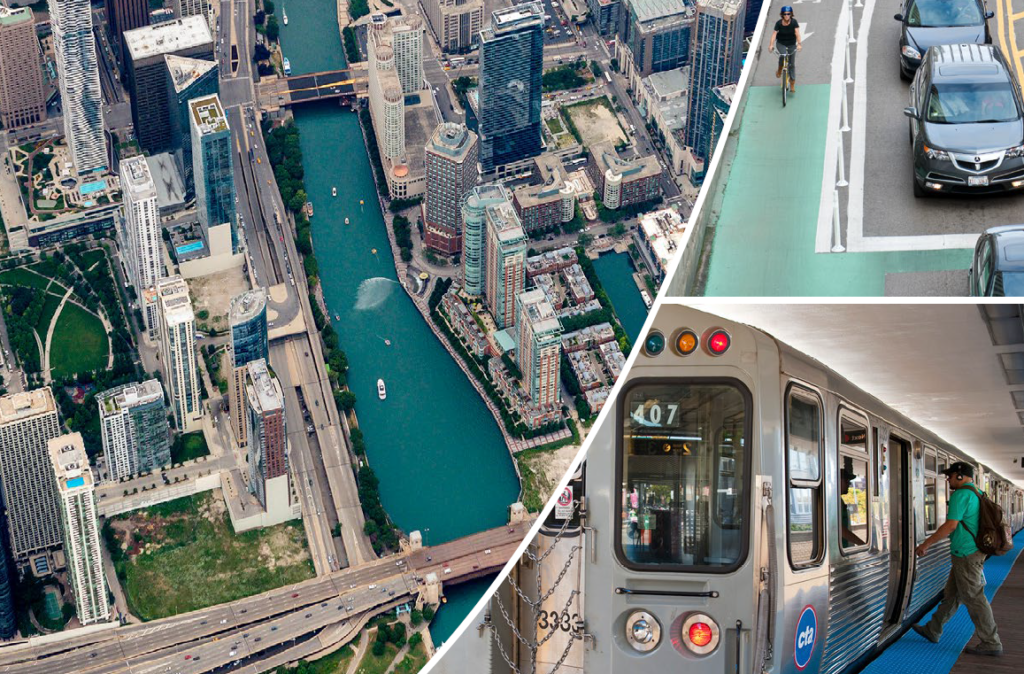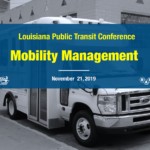
Transit agencies and their counterparts in city governments and at metropolitan planning organizations are developing ‘mobility action plans’ to support the transportation choices that residents want in order to move more people, more efficiently and more safely.
Capital Metro
Austin, TX
Amid its many forays into innovation (including automated operations), Capital Metro is noteworthy for its steps to incorporate B-cycle bikeshare program into its transit network.
Digital Fare Equity: Rolling out this month a new account-based app to include a digital fare equity feature. Payments can be made by phone, smart card, or bank card, minimizing contact between customers and vehicle operators. Riders without a bank account or card will be able to load smart cards with cash at participating retail stores.
Embracing Biking: Capital Metro has taken numerous steps to incorporate B-cycle bikeshare program into its transit network. A partnership with the city aims to create long-term bikeshare service improvements by expanding fleets and stations and optimizing first and last mile transit solutions. CapMetro has announced that it will no longer be charging an annual fee for bike riders to use their MetroBike Shelters. In addition, transit users may soon be able to buy a one-day pass on their phones to use both public transportation and city-owned bicycles.
Strategic Mobility Plan: Austin’s Strategic Mobility Plan is a comprehensive multimodal transportation plan for the future of the city’s transportation network. In addition, the City of Austin has developed a new mapping tool to combat gentrification and displacement to promote more affordable housing ahead of a proposed transit expansion.
Austin Strategic Mobility Plan
April 2019
Austin, TX
The Austin Strategic Mobility Plan is a comprehensive multimodal transportation plan for the future of the city’s transportation network – and it is needed for the city to achieve the mobility outcomes that will help to improve and sustain the quality of life for all community members. Austinites want their city, and their transportation network, to be safe, accessible, and inclusive for all members of their community.
First/last mile plan now available for East San Fernando light-rail project
November 2020
The Los Angeles County Metropolitan Transportation Authority (L.A. Metro) Board of Directors will consider a first/last mile (FLM) plan for the East San Fernando Valley Light Rail Transit project.
Oregon DOT Becomes new Office of Urban Mobility and Mega Project Delivery
January 2020
In response to stakeholder and public feedback, the Oregon Department of Transportation is developing a new focus on comprehensive solutions to congestion, access and mobility issues, which affect quality of life and economic health beyond the Portland metro area.
Mobility Management in Rural Areas
November 2019
New Orleans, LA
Presented by Jonathan Bolen, Special Projects Planner, Rapides Area Planning Commission. This presentation explains the basic process for integrating mobility options and focuses on rural areas.
Go Boston 2030
November 2019 (Updated)
Boston, MA
This plan envisions a city where all residents have better and more equitable travel choices. The city is working to build efficient transportation networks that create economic opportunity. Boston will also take much needed steps to prepare for climate change. Through the implementation of this plan, people will be able to access all parts of Boston safely and reliably. This is true whether you travel on foot, by public transportation, by bike, or by car.
Pittsburgh Mobility Collective
July 2019
Pittsburgh, PA
The Pittsburgh Mobility Collective (PMC). PMC is a self-organized collective of last mile and alternate commute mobility providers.
Selected through a competitive solicitation process, the collective organizes a range of different mobility service providers into a unified mobility service offering providing last mile connections to transit and sustainable transportation alternatives to private drive-alone auto trips.
Central Ohio Transportation Authority Releases 5-Year Strategic Plan
July 2019
Columbus, OH area
Moving every life forward is COTA’s vision for developing and growing to best serve Central Ohio. With technological advancements and trends in transportation constantly developing, COTA is committed to evolving as an organization by focusing on customer values and providing a service for Central Ohio residents from all walks of life.
The COTA strategic plan is the five-year blueprint for the future that allows for a constant reminder of the agency’s goals and values moving forward. COTA is committed to being more than a transit agency, and using four guiding principals for success in future initiatives to ensure our overall mission is at the forefront of development decisions.
Mobility Framework: King County Metro
July 2019
King County, WA
Metro is developing a framework for the equitable and sustainable implementation of an integrated, regional network of mobility services and innovations. The goal is to plan for the future and set Metro and the region up to grow, invest, and innovate in a way that advances equity and addresses climate change. View progress on the plan so far.
Roadmap for the Future of Transportation and Mobility in Chicago: Chicago’s New Transportation and Mobility Taskforce
March 2019
Chicago, IL
The Task Force grounded its recommendations in a set of principles for government leaders
and stakeholders to follow when developing policy, planning for infrastructure, launching
programs and pilots, and studying new innovations and services. These principles are:
- A transportation system that is safe for all users;
- Mobility choices that are accessible, equitable, affordable and non-discriminatory;
- Economic development that is inclusive and innovative;
- A city that is efficient, smart and reliable;
- Communities that are sustainable, healthy, and built using universal design principles;
- Data and information that is actionable, transparent, shared, and secure, and
- Regulation of private providers that is guided by public benefits.
Mobility Summit: King County Metro Futures Cabinet
November 2018
King County, WA
New Mobility thought leaders convened in Seattle in November 2018. Leaders across the region gathered to explore how emerging technologies and new mobility options can improve urban transportation and to tackle the tough challenges associated with implementing smart mobility policies and projects.
- Rob Gannon, General Manager, King County Metro
- Challenge Seattle
- Brookings Institution
- Video: King County Mobility Agency
LA Metro Vision 2028
April 2018
Los Angeles County, CA
The Los Angeles County Metropolitan Transportation Authority (Metro) has released its Metro Vision 2028 plan, which outlines steps to improve local mobility and quality of life over the next decade. View the plan.
Denver’s Mobility Action Plan
September 2017
Denver, CO
Denver is ready to reinvent its transportation system with a focus on mobility, safety, equity, sustainability and smart technology to improve connectivity, economic opportunity and quality of life for everyone. Denver’s Mobility Action Plan
Seattle Department of Transportation’s New Mobility Playbook
September 2017
Seattle, WA
Seattle generates innovation, but the future of the city will be shaped by shared values. Seattle is committed to equity and racial and social justice. The city acknowledges that misguided decisions and plans in the last century, particularly in transportation policy and infrastructure, often made life harder for residents who were already at a disadvantage. So, as they embrace new transportation technology, they seek to shape it in a way that ensures the city’s evolving transportation system works better for all of us. They will ensure new mobility puts people first. New Mobility Playbook



